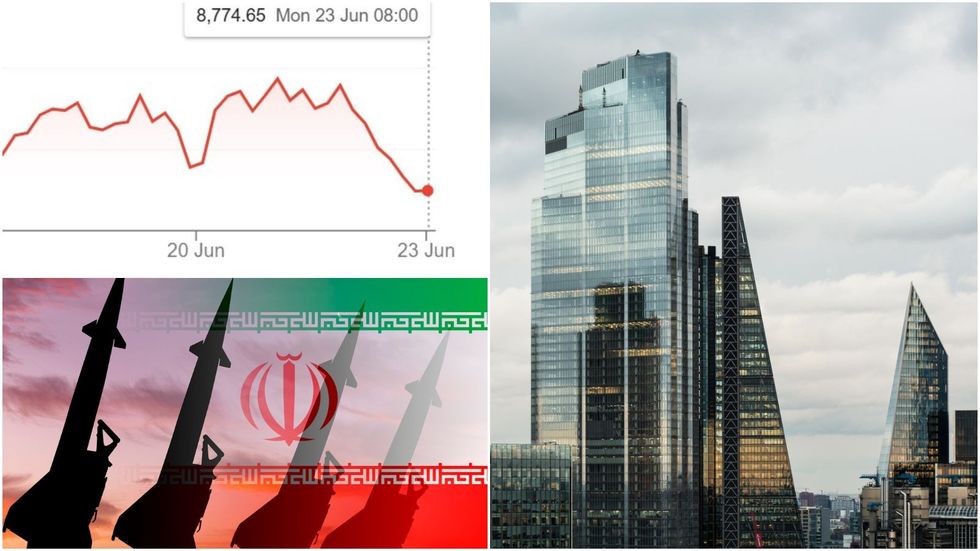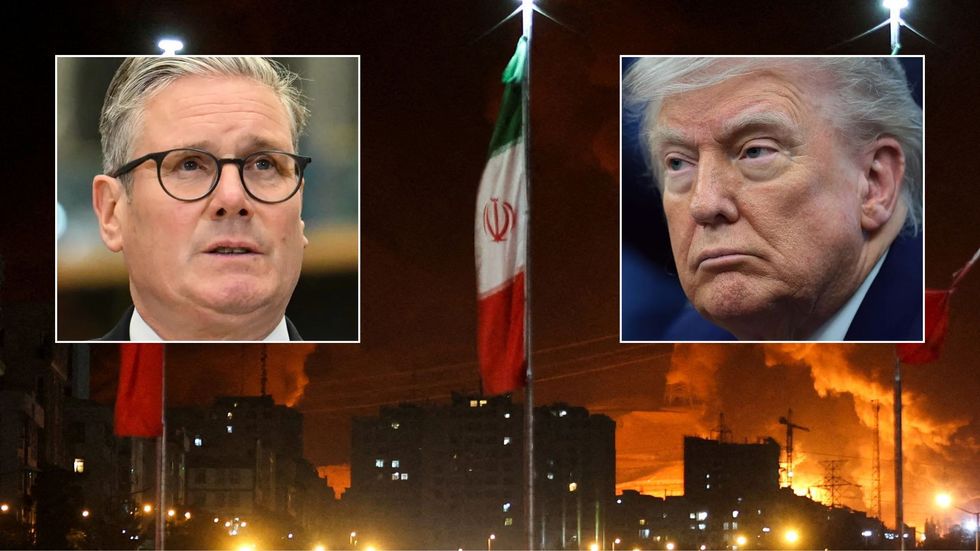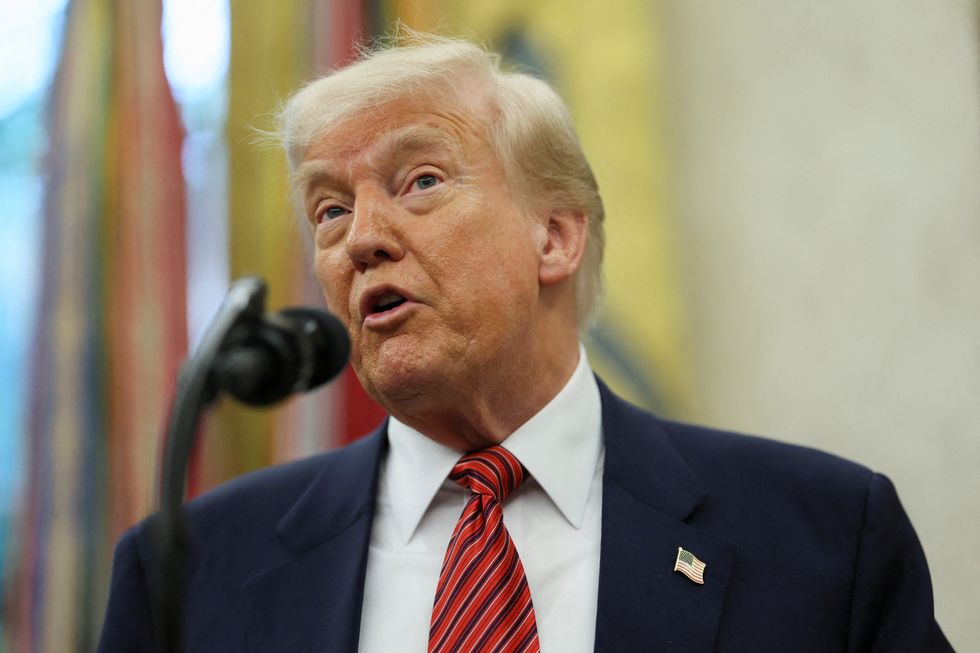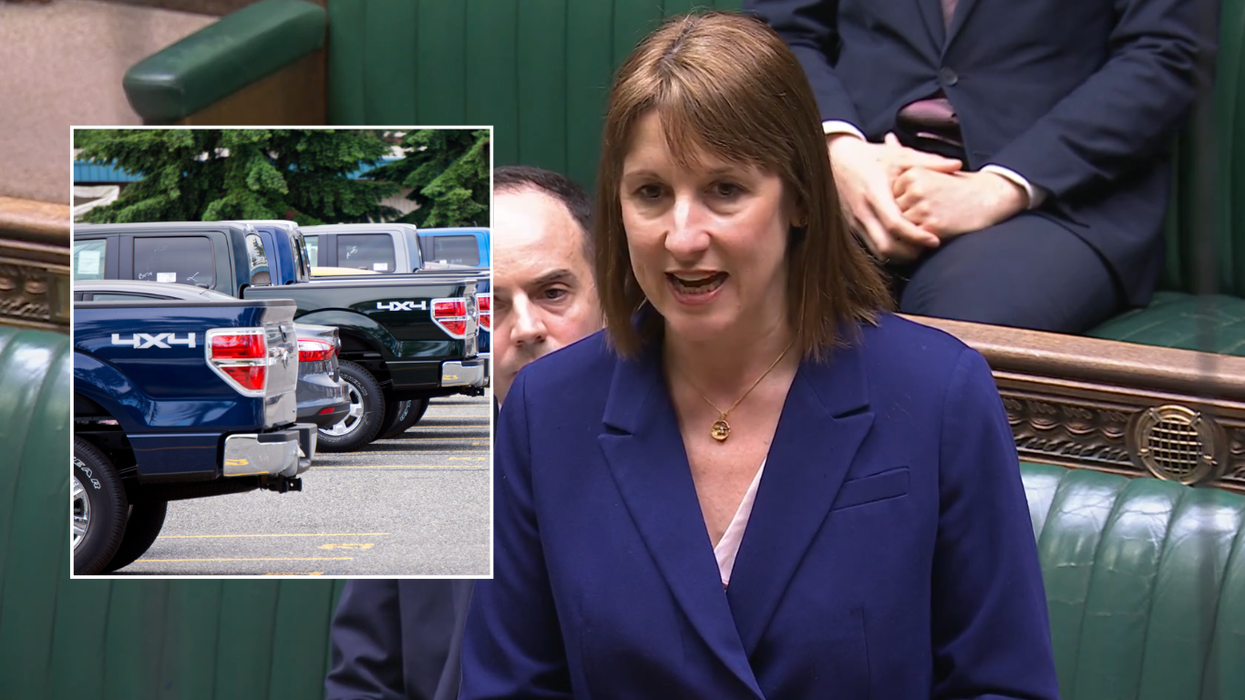Ben Leo grills Mel Stride on the Tories's 'missed golden opportunity' with the economy
GB NEWS
London's stock exchange opened lower following US President Donald Trump's decision to strike Iranian nuclear sites
Don't Miss
Most Read
The Ftse 100 dropped this morning, before recovering, in reaction to the US attacking three Iranian nuclear sites and Iran's subsequent threats to close the Strait of Hormuz trading route.
London's stock exchange opened 30 points lower once trading began, with Asian markets also falling dramatically as tensions between the US and Iran reach fever point.
Airliners saw the biggest drops in the Ftse 100 with British Airways and easyJet owner International Consolidated Airlines Group SA down two per cent.
British Airways is among the multiple airlines choose to cancel flights between the UK and Dubai in response to the US dropping bombs on Iran.

The Ftse 100 slipped this morning in reaction to global conflict
GETTY / GOOGLE
Conversely, oil giants BP and Shell were on the rise in response to this past weekend's news, up 1.3 per cent and 0.7 per cent, respectively.
Japan’s Nikkei was 60 points, or 0.15 per cent after dropping around 200 points in early trading. Ahead of the Ftse's opening, European futures pointed to markets on the continent open lower.
US stock markets are also expected to open lower in response to President Donald Trump's decision to green light airstrikes on the Islamic Republic's key nuclear sites.
Following the sites being targeted, the Iranian Parliament voted to close the Strait of Hormuz, a vital trade route for the global economy, which is expected to impact oil prices.
Do you have a money story you’d like to share? Get in touch by emailing money@gbnews.uk.
 Donald Trump gives 'last chance' to Iran to make a deal as Britain tells US President that bombing Tehran puts Westerners at riskREUTERS/GETTY
Donald Trump gives 'last chance' to Iran to make a deal as Britain tells US President that bombing Tehran puts Westerners at riskREUTERS/GETTYAround a fifth of the world’s oil supply, 20m barrels, and much of its liquified gas, passes each day through the trading route.
US Vice President JD Vance claimed Iran's potential closure of the Strait of Hormuz would have serious consequences for Tehran itself, as well as the wider economy.
He explained: "Their economic system is dependent on this waterway. There is no reason for them to see such a step."
Ipek Ozkardeskaya, a market analyst at Swissquote Bank, warned that the world is "holding its breath to see how Iran will respond" to America's intervention.
She outlined what closure of the Strait of Hormuz could potentially look like.
Ozkardeskaya added: "This could involve blocking the canal or attacking commercial ships, as the Houthis do.
LATEST DEVELOPMENTS:
 Trump's move would cause outrage with IranGetty
Trump's move would cause outrage with IranGetty"Another option could be striking nearby oil facilities – similar to the 2019 attack on Saudi Abqaiq that knocked out seven per cent of global oil supply.
"But many remain optimistic that Iran will avoid a full-blown retaliation and regional chaos, to prevent its own oil facilities from becoming targets and to avoid a widening conflict that could hurt China – its biggest oil customer.
"So some think – and trade the idea – that the threat of disruption to oil trade will not materialize."





































